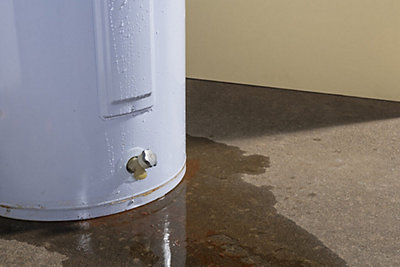How Many Years Before a Water Heater Needs to Be Replaced? What Are the Signs?

Wondering how long your water heater will last? When to start thinking about replacing it? We’ve got you covered. In this guide, we’ll answer these questions and more, helping you avoid any surprise cold showers!
Water Heater Life Expectancy
Water heaters don’t last forever, but how long do they last? Well, the typical lifespan of a traditional tank water heater is between 6 and 13 years. If yours is hitting the 8 to 10-year mark, it’s a good idea to start considering a replacement. Why? Because replacing a water heater while it’s still working is far easier (and less stressful) than scrambling when it breaks down completely.
Besides, an old water heater can start causing problems like rusty water, strange noises, or even leaks, all of which we’ll cover next.
5 Tell-Tale Signs Your Water Heater Is Failing
No one wants to be caught off guard by a failing water heater. If you notice any of these signs, it’s time to act:
Rust-Colored Water
- Brown, rusty water is a clear sign that the inside of your water heater is corroding, particularly at the bottom of the tank. Once corrosion sets in, it’s only a matter of time before the heater fails.
Strange Noises (Popping or Gurgling)
- Ever heard a popping sound from your water heater? That’s not normal. It’s likely caused by sediment buildup at the bottom of the tank. Over time, the heat causes these particles to harden and make noises—like popcorn in the microwave. This indicates that the bottom of your tank may be deteriorating.
Leaking Water
- This one is pretty straightforward. If there’s a puddle under your water heater, it’s leaking. Leaks can lead to significant water damage if not addressed quickly, so don’t wait too long to replace the unit.
Water Heater Age
- If your heater is over 10 years old, start thinking about replacement, especially if it’s showing signs of wear. A proactive replacement can save you from an inconvenient breakdown.
Inconsistent Water Temperature
- Is your water taking longer to heat up or not staying hot for long? This is a common sign that your water heater is on its last legs.
Benefits of Tankless Water Heaters: Is It Time to Upgrade?
If you’re in the market for a new water heater, you might want to consider going tankless. Here are some key advantages:
Why Choose a Tankless Water Heater?
Longevity
- Tankless water heaters last up to 20 years, significantly longer than traditional tank heaters, which typically cap out around 13 years.
On-Demand Hot Water
- No more waiting! Tankless systems heat water as you need it, meaning you get hot water in 15 seconds or less, compared to the minute or two you might wait with a traditional tank system.
No Tank, No Corrosion
- Since there’s no water tank, you don’t have to worry about sediment buildup or corrosion eating away at the bottom of your water heater.
Energy Efficiency
- Because tankless units don’t keep a reservoir of water constantly hot, they’re typically more energy-efficient, saving you money on your energy bill.
Frequently Asked Questions (FAQs)
Q: How often should I flush my water heater?
A: It’s recommended to flush your water heater once a year to remove sediment buildup. This can extend its lifespan and help it run more efficiently.
Q: Can I extend the life of my water heater?
A: Yes! Regular maintenance like flushing the tank, replacing the anode rod, and keeping an eye out for signs of wear can help extend its life.
Q: What’s an anode rod, and why is it important?
A: The anode rod is a sacrificial rod inside your water heater that attracts corrosive particles. It’s there to protect your tank from rusting. However, it needs to be replaced every few years as it wears down.
Q: Should I repair or replace my water heater?
A: If your water heater is 8-10 years old and showing signs of wear (rust, leaks, inconsistent heating), it’s probably time to replace it. Otherwise, repairs might suffice.
Key Takeaways
- Traditional water heaters typically last 6 to 13 years.
- If you’re noticing rusty water, strange noises, or leaks, call a professional to assess your water heater.
- Tankless water heaters offer on-demand hot water, longer life expectancy, and better energy efficiency.
- Proactive maintenance can help extend the life of your water heater, whether it’s tank or tankless.
If you’ve noticed any of these signs or just want to ask some questions about your water heater, the trusted plumbers at Parker & Sons are here to help. We serve homes in Phoenix and Tucson, so don’t hesitate to give us a call for a consultation or an inspection.
Whether you’re interested in learning more about our tankless water heaters, or you have questions or concerns about your water heater, we’re here to help. Our top-notch plumbers here at Parker & Sons can fix any problem in your Phoenix or Tucson home.
Related Reading
Subscribe to our e-Newsletter
Stay up-to-date on current news, promotions, and industry tips.
